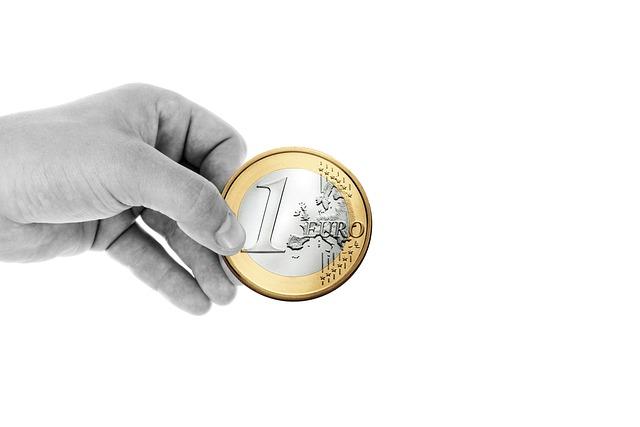Let’s be real-money can feel overwhelming. Whether you’re fresh out of school, starting your first job, or just looking to get a better grip on your finances, managing your money doesn’t have to be complicated. In this Finance 101 guide, we’re breaking down simple, no-nonsense tips to help you start taking control of your cash flow and set yourself up for financial success. Ready to stop stressing about bills and start feeling confident about your money? Let’s dive in!
getting a Grip on Your Spending Habits Without Losing Your Mind
Tracking your spending doesn’t have to feel like a chore or a punishment. Start by setting realistic expectations – you’re not trying to become a financial wizard overnight, just get a clearer view of where your money is going. Use simple tools like a budgeting app,a spreadsheet,or even a plain old notebook. The key is consistency,not perfection. Consider creating categories that fit your lifestyle, such as dining out, groceries, and entertainment, then review your progress weekly. Celebrate small wins, like avoiding that extra coffee run, and don’t beat yourself up over occasional splurges. It’s all about building awareness without adding stress.
To make things easier, here’s a quick guide to gently adjusting your habits without feeling deprived:
- automate savings: Set up a small, regular transfer to your savings account-it’s money you won’t easily miss.
- practice mindful spending: Before buying something, ask yourself if it really adds value or joy.
- Set non-negotiable limits: Decide on monthly caps for fun categories so you can enjoy guilt-free spending within boundaries.
- Swap before splurging: Try borrowing or renting items instead of buying.
| Spending Habit | Easy Adjustment | Benefit |
|---|---|---|
| Daily coffee runs | Brew at home 3 days/week | Save $15-$20/month |
| Impulse online buys | Wait 24 hours before purchasing | Reduce unnecessary expenses |
| Unused subscriptions | Cancel or pause monthly plans | Save $10-$30/month |

Building a Foolproof Budget That Actually Works for You
Creating a budget that sticks isn’t about restricting yourself but about empowering your spending. Start by tracking your income and expenses down to the last coffee. This visibility helps you understand where your money is truly going and where you can cut back without feeling deprived. Use categories that make sense to you, like ”fun money,” “essentials,” and “goals,” so you’re budgeting in a way that aligns with your lifestyle. Don’t forget to factor in irregular expenses, like annual subscriptions or car maintenance, to avoid surprises!
Next, build in some flexibility. Your budget shoudl be a living document-not some rigid plan you dread. Try these tips to make it work:
- Set realistic limits: Don’t slash fun spending to $0; instead, allocate a treat fund.
- Review regularly: Check your budget weekly to adjust for any changes in income or expenses.
- Automate savings: Pay yourself first by setting automatic transfers to your savings account.
- Celebrate milestones: Reward yourself when you stick to your budget goals.
here’s a quick example of how you might divide your monthly income:
| Category | Percentage | Purpose |
|---|---|---|
| Essentials | 50% | Rent, groceries, bills |
| Savings | 20% | Emergency fund, investments |
| “Fun Money” | 15% | Eating out, hobbies |
| Debt Payments | 10% | loans, credit cards |
| Miscellaneous | 5% | Unexpected expenses |
Tailor these percentages to your life, but the key is consistency and awareness. When you budget for your real life - not some cookie-cutter plan – managing money becomes way less stressful.

Smart Ways to Crush Debt and Stay Motivated
Getting out of debt can feel like climbing a mountain-but with the right plan, it’s totally doable. start by listing all your debts, then attack them with a method that fits your style.The debt snowball approach helps build quick wins by paying off smaller balances first, boosting motivation. On the flip side, the debt avalanche method targets high-interest debts first, saving you money in the long run.Whichever path you choose,consistency is key. Automate payments, track your progress visually (hello, charts and apps!), and celebrate small victories to keep your momentum going.
Staying motivated while crushing debt isn’t just about numbers-it’s about mindset. Surround yourself with positivity: create a vision board of financial goals or join online communities where you can share wins and tips. Here’s a quick rundown of powerful motivators to keep your energy high:
- Reward system: Treat yourself in small, budget-friendly ways after hitting milestones.
- Accountability buddy: Share goals with a friend to create friendly pressure.
- Visual trackers: Use apps or DIY charts to watch your debt shrink in real-time.
- Mindful spending: Reflect on how each purchase aligns with your bigger financial dreams.
| Debt Payoff Method | Best For | Motivation Boost |
|---|---|---|
| Debt Snowball | Quick wins with smaller balances | High; fast payoff feels rewarding |
| Debt Avalanche | Saving money on interest | Moderate; slower but more cost-effective |
Easy Savings Hacks to Boost Your Emergency fund Fast
Saving money doesn’t have to be a grind. Small,consistent tweaks to your daily habits can add up to a hefty emergency fund sooner than you think. Try automating your savings by setting up a direct transfer to a separate account right after each paycheck hits-out of sight,out of mind! Also,challenge yourself to a no-spend weekend where you only use what’s already at home,skipping dining out or any online shopping. Trust me, your wallet will thank you, and the savings keep stacking up without feeling deprived.
Another fun and simple hack is to put your lose change or small bills into a “savings jar.” you’ll be surprised how quickly pennies turn into dollars. Plus, cutting back on one expensive habit-like daily coffee runs or premium streaming subscriptions-can free up a nice chunk of cash every month. Here’s a quick cheat sheet to spark your creativity:
- Skip the takeout: Cook one extra meal and save the leftovers.
- Negotiate bills: Call your providers and ask for discounts or better plans.
- Switch to cash: Helps curb overspending and visualize your budget.
| action | Estimated Monthly Savings | Effort Level |
|---|---|---|
| Brew coffee at home | $60 | Low |
| Cancel unused subscriptions | $25 | Medium |
| Use coupons or cashback apps | $30 | Low |
Investing Basics for Beginners Who Don’t Want to Overthink It
When it comes to investing, simplicity is your best friend. You don’t need to become a Wall Street expert overnight or juggle a dozen complicated stocks. Start by focusing on low-cost, diversified options like index funds or exchange-traded funds (ETFs). These are basically baskets of investments that track the market, giving you broad exposure without the stress of picking individual winners. Plus, they often come with lower fees, meaning more of your money stays where it should - working for you. The key is consistency: set up automatic monthly contributions to your investment account, so you’re steadily building wealth without having to think twice.
To keep things easy,remember these simple rules:
- Start small: Even $50 a month is a great start.
- Ignore the noise: Markets go up and down,don’t panic sell.
- Think long-term: Investing is a marathon, not a sprint.
- Rebalance occasionally: adjust your portfolio once a year to maintain your target risk level.
| Investment Type | Risk Level | Typical Return |
|---|---|---|
| Index Funds | Low to Medium | 7-10% annually |
| Individual Stocks | medium to High | Variable |
| Bonds | Low | 3-5% annually |
| real Estate | Medium | 5-8% annually |
Q&A
Finance 101: Simple Tips to Start Managing Your Money right - Q&A
Q: I’m not a finance expert. Where should I even start with managing my money?
A: Awesome question! The easiest place to start is by simply tracking where your money goes. Grab a notebook,use an app,or even a simple spreadsheet to jot down every dollar you earn and spend for a month. Once you see the patterns, it becomes way easier to decide what you can cut back on and where to save.
Q: Saving money sounds great, but I never seem to have enough left at the end of the month. What can I do?
A: You’re definitely not alone! Try paying yourself first. That means set up an automatic transfer to your savings as soon as you get paid-before you spend on anything else. Even small amounts add up over time. Also, look at your regular expenses and see if there are any easy changes (like swapping a pricey coffee for homemade or canceling unused subscriptions).
Q: debt is overwhelming.How do I start tackling it without freaking out?
A: Deep breaths! Start by listing all your debts (credit cards, loans, etc.) with their interest rates and minimum payments. Then pick a strategy that works for you:
- snowball method: Pay off the smallest debt first for quick wins.
- avalanche method: Attack the highest interest debt first to save on interest.
Either way, keep making minimum payments on all debts and put extra cash towards one at a time.
Q: is budgeting complicated? I hate strict rules!
A: Nope! Budgeting doesn’t have to be rigid. Think of it as a flexible plan that helps you spend consciously, not as a punishment. Use a 50/30/20 rule as a simple guideline: 50% of your income for needs, 30% for wants, and 20% for savings and debt payoff. Adjust as it feels right for you.Q: What are some easy habits to build good financial health?
A: Start small and be consistent! Some easy habits:
- Check your bank balance regularly (even just weekly)
- Set up automatic savings
- Avoid impulse buys by waiting 24 hours before purchasing non-essentials
- Learn a bit about personal finance through blogs or podcasts you enjoy
Over time, these small habits add up big!
Q: Should I invest my money right away?
A: investing is a smart goal, but don’t rush into it without a safety net. Make sure you have an emergency fund (3-6 months of expenses saved) and that high-interest debts are under control first. Then, start with simple options like a retirement account or low-cost index funds. Remember, it’s more about starting early and being consistent than trying to pick the hottest stock.
Q: Any final advice for someone just starting their money management journey?
A: Celebrate progress,not perfection! Managing money is a skill you learn over time. Don’t stress if you mess up or have setbacks. The key is to keep going, stay curious, and be kind to yourself along the way. You got this!
To Conclude
And there you have it-finance doesn’t have to be scary or complicated! By starting with these simple tips, you’re already on your way to taking control of your money and building a healthier financial future. Remember, it’s all about small steps, consistency, and staying curious. So go ahead, put these tips into action, and watch your money game get stronger day by day. You’ve got this! Until next time, happy budgeting!











